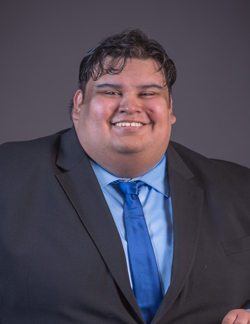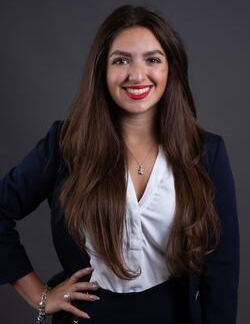Justin Cias
Spring 2021
Lloyd Gosselink law firm

During spring 2021, 3L Justin Cias also worked for Lloyd Gosselink as a remote intern. He recalls that he had an initial screening interview and then had several follow up communications with the firm. He connected with a Texas A&M Law graduate at the firm and was able to ask questions about the work and culture of the firm.
He was able to turn this connection into a valuable talking point in his interview and says this connection made the interview process “more friendly… and less stressful.” During his internship, Cias worked with various lawyers, and his work mostly dealt with writing contracts concerning air pollution and water treatment law.
Cias also worked at Husch Blackwell’s Houston office during summer 2021. The work mostly consisted of drafting commercial litigation documents. He worked on a comparative analysis between a state law and NEPA, which he had just studied during the prior semester in Environmental Law. “That was especially cool,” he noted, “to see something that you saw in class a couple months ago… and you are working on a project like that.” Cias noted that Husch Blackwell is also very focused on renewable energy, which is one of the reasons he was drawn to the firm.
Christyn Cavazos
Summer 2021
Galveston Bay Foundation

During summer 2021, 2L Christyn Cavazos worked with the Galveston Bay Foundation, an environmental non-profit organization. She reached out to a former student of Professor Gabriel Eckstein after a panel presentation at the law school, and told her how interested she was in the effects of climate change on vulnerable communities.
The connection she forged with that former student turned into a valuable mentor for Cavazos, and eventually the internship. Her work at the Foundation focused mostly on natural flood mitigation strategies, and she performed extensive research on how other areas of the country are dealing with flooding, particularly in areas that geographically matched the region she was investigating. Cavazos said she particularly appreciated how the non-profit community was extremely close-knit and reciprocal, especially with other water conservationist organizations.
She reported that much of the internship also taught her about local government and politics, and that she dedicated a lot of time to learning who the industry players were in Houston and attending various public meetings (city council, etc.). This informed her on how the local government affected Galveston Bay, as well as informed her on the interconnectedness of making legal progress through a non-profit organization.